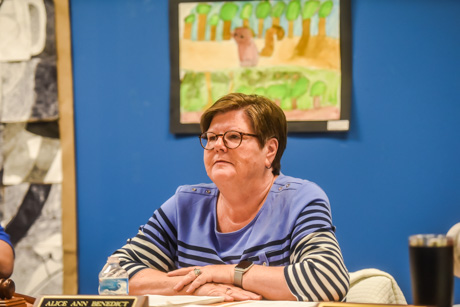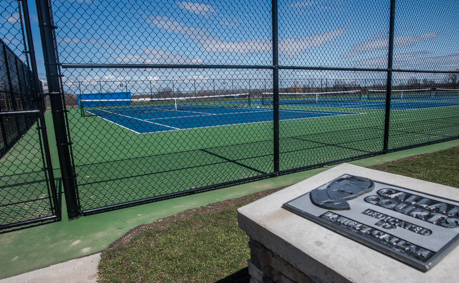Batavia City Schools officials clarify potentially lower tax rate for increased levy
Batavia City School officials want to make something clear about this year’s proposed $54.8 million budget.
Although the levy is to increase by 1 percent to just under $20 million, the actual tax rate may go down due to the volume of raised assessments, Superintendent Jason Smith and Business Administrator Scott Rozanski said. In fact, if assessments remain the same as they were on April 14, the projected tax rate could be $1.77 less than it is now, Rozanski said during an interview Friday with The Batavian.
School officials — including board members — haven’t been touting that lower tax rate because nothing is definite yet, Rozanski said. There’s about a month left for property owners to file grievances and argue their assessment increases, he said. Instead, Smith mentioned the “concept” of a potentially lower tax rate without talking about actual numbers during Thursday's budget presentation, he said.
"It's hard to get the tax rate right now. The assessments are still being challenged, right?" Rozanski said. "If everything stays the same as of April 14, indirectly, we didn't say 17.46, we said it is $1.77 less, as of April 14, than the current rate."
The Batavian confirmed the process — complicated as it may be — about calculating tax levies, assessments and correlating tax rates with Kevin Andrews, deputy treasurer for Genesee County. A prior city schools board meeting included the rough figures of a 19-cent property tax increase based on the proposed 1 percent tax levy increase.
That did not, however, include the 11 percent hike in property assessments throughout the city school district entities of schools, the city, Richmond Memorial Library and Genesee County. If assessments are raised more than the proposed tax levy increase, then the tax rate itself is likely to go down, Andrews said. In perhaps oversimplified terms, if you are dealing with 10 properties, and their values go up, the distribution of tax levy would be divided by that larger total assessment for a lower tax rate. If you divided the same levy amount by lower assessed properties for those same 10 properties, the tax rate would reflect that by going up to pay the levy.
“So it could very well be that their levy is going to go up by one percent, but the tax rate is actually going to go down, because of the amount that the assessments have gone up,” Andrews said Friday. The basic calculation or way it works is that whatever the tax levy is, that is adopted by the school in this case … that levy is then distributed and spread out amongst all of the property owners within the municipality based on their assessment. So if you think about it, you know, if you look at each piece by itself, if just the levy goes up, and assessments do the same, then the tax rates are gonna go up, right? Because you're levying more tax. And on the reverse side, if the levy stays the same, and the assessments go up, then in that case, the tax rate would go down, because we're distributing that same levy amongst (the same number of property owners).”
The actual formula, Andrews said, is to take the proposed levy ($19.6 million) and multiply that by the total assessments ($1.1 billion) and multiply that number by 1,000 (assessed value).
Again, since the total assessment, before considering any readjusted assessments, is at an 11 percent increase versus a 1 percent tax levy increase, so a projected tax rate right now is $17.46, Rozanski said. That number will not be certain until after grievances are handled and assessments are potentially adjusted, he said. School tax bills are to go out in October with a final tax rate. If it is $17.46 per $1,000 assessed value, then the difference in a $100,000 property now assessed at $125,000 would be: 100 X $19.23, the current rate, = $1,923 and 125 X the estimated rate of $17.46 = $2,182.50, for an increased property tax payment of $259.50.
To view Thursday’s budget presentation, go to: https://www.youtube.com/channel/UC8JI99xyBJt1sGdRzmCW2Kg






